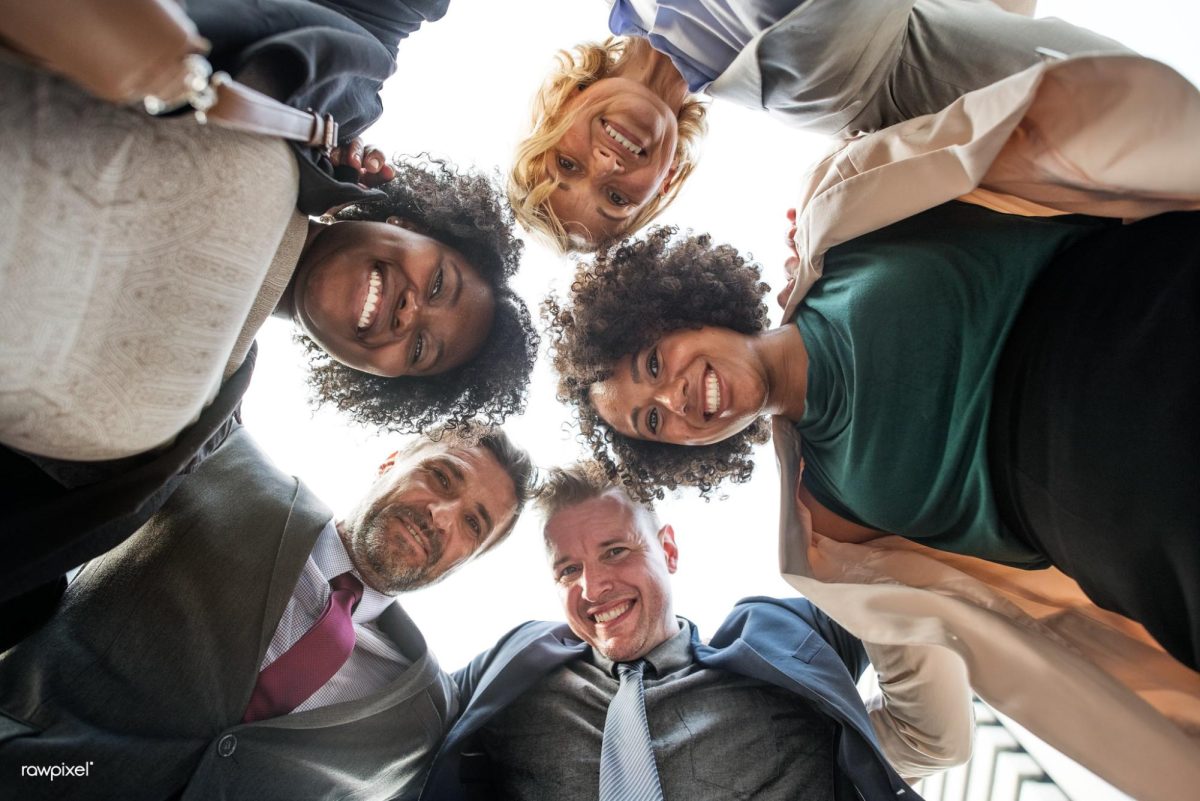Body positivity is hardly a radical idea. In a unique society, unique bodies should be expected. Unfortunately, expected is not the same as accepted. Even though body positivity is not a new idea, fatphobia continues to be a huge problem in our society.
Body liberation is an entirely different concept. Body liberation does not involve false positivity and acknowledges that it’s impossible to expect to be happy with one’s body all the time — particularly in a society so focused on diet culture. Andrea Bolivar, a yoga teacher and embodiment facilitator in Salt Lake City, defined body liberation as “stepping away from diet culture and body shaming … and choosing to instead move from a place of expansion and love.”
Bolivar described body-liberated living as moving and nourishing the body in a way that supports healthy living and body image acceptance. They added that it not only supports going to the gym and eating plenty of veggies and fruits, but also eating sugar and dancing around the room. Body-liberated living is about recognizing that having a body is just one part of being human — and it benefits us as college students. We must embrace it to become healthier, fuller versions of ourselves. We cannot allow ourselves to fall prey to the toxic diet culture prevalent in both Utah and university environments.
The Freshman 15
College students face an incredible amount of pressure around weight and weight gain. “The Freshman 15” is described by Northshore University as “… this impending doom of gaining 15 pounds during your first year away at college.” To analyze “The Freshman 15,” we have to understand why people are so afraid of gaining weight. Weight is a scale on which people measure their desirability. Society teaches people, especially women, that they are nothing if not desirable. Society teaches that any sort of weight gain makes a person unlovable, undesirable and ugly. There are many more important things for college students to be concerned about.
College is already stressful enough with the immense pressure of exams, grades, tuition and relationships. Adding fear of weight gain on top of all of this is detrimental to college students’ mental health. Bolivar said that “beginning to have hard conversations with others and yourself” and “having a brave anti-diet or body-shaming free space is key.” Body liberation can also be found in seeing others feel liberated in their bodies or be found in taking a deep look at the life you want to live and making decisions about what you want your life to be.
Eating Disorders & Other Issues
28.8 million Americans will suffer from an eating disorder in their lifetime. Eating disorders can be very severe. They can involve restricting and binging, which overtake people’s lives. Eating disorders have the second-highest mortality rate of all mental health disorders. The University of Utah Huntsman Mental Health Institute aims to treat eating disorders “to achieve health for any shape or size.” This is similar to what body-liberated living focuses on. Everyone can be healthy, regardless of their weight. Healthiness should always take precedence over skinniness.
Most eating disorders start in childhood, between ages nine to 17. Studies show that children begin to form negative opinions of their bodies as young as three years old. It is vitally important to consider how you speak about your body before you have children. Children echo what they hear, and apply it to themselves. They are worried about being “fat” and about the negative connotations of that word.
Social media also has a huge impact on anyone’s body image, especially young children. It presents the image of an “ideal body.” We must reconsider the language we are using when we discuss our bodies. If we do not, we will inflict children with negative body image, and continue a relentless cycle of disordered eating throughout their lives.
Body Image in Utah
A website titled Young Mormon Feminists discusses how being fat and Mormon is a very isolating experience. Natasha, the article’s writer, equates being fat with being unrighteous in Mormon society. She discusses how weight leads to assumptions about morals and appearances. It is wrong to decide how righteous someone is based on their weight.
In Utah, women struggle to find size-inclusive stores. Utah must make an effort to make more stores size-inclusive. It’s not difficult to make clothing in bigger sizes. Every person deserves to wear clothes they feel their best in. Every person deserves to wear clothes that they enjoy. In order to begin living body-liberated lifestyles, we must have access to more size-inclusive options.
Fashion is an important form of self-expression for college students. It is vital that all students, regardless of weight, have access to size-inclusive clothing. Self-expression is not a privilege that should only be granted to those who are skinny.
It’s a waste of life to focus so solely and entirely on weight — so much so that it consumes you. It is important to focus on health. It’s important to move your body, to exercise and keep your body healthy, and to eat good foods. But these things should not come at the cost of body image. Skinniness should not be equated with happiness.
Life cannot be only defined by weight. College students must recognize that change begins with us. As future parents, teachers and more, the way we discuss our bodies and overall health will have an incredible impact on the future. We must be conscious of what it means to live and also be liberated. Our lives are more than what we weigh.
“Am I really happy living my life to be smaller?” Bolivar said.
No one should have to shrink themselves to fit into our world, and they don’t have to. We must embrace happiness, no matter what shape it comes in.




Michael • Aug 18, 2023 at 8:52 am
I think a really fun follow-up would be to take body liberation in context of mobility disabilities. Like other paraplegics, I had to come to terms with never having a ‘perfect body’ after I was paralyzed from the chest down. Honestly, this perspective helped me learn to value and strengthen what little I had left, but I never felt dissatisfied with what I had lost. Even while going to college my life felt beautiful! Still, I know not every disabled student feels that way. I think it’d be good to get our perspective too.
Morgan Champine • Sep 3, 2023 at 5:09 pm
Thank you so much for your comment, Michael! I agree that disability is an incredibly important perspective when discussing body liberation. A follow-up is a great idea. Thank you for reading!